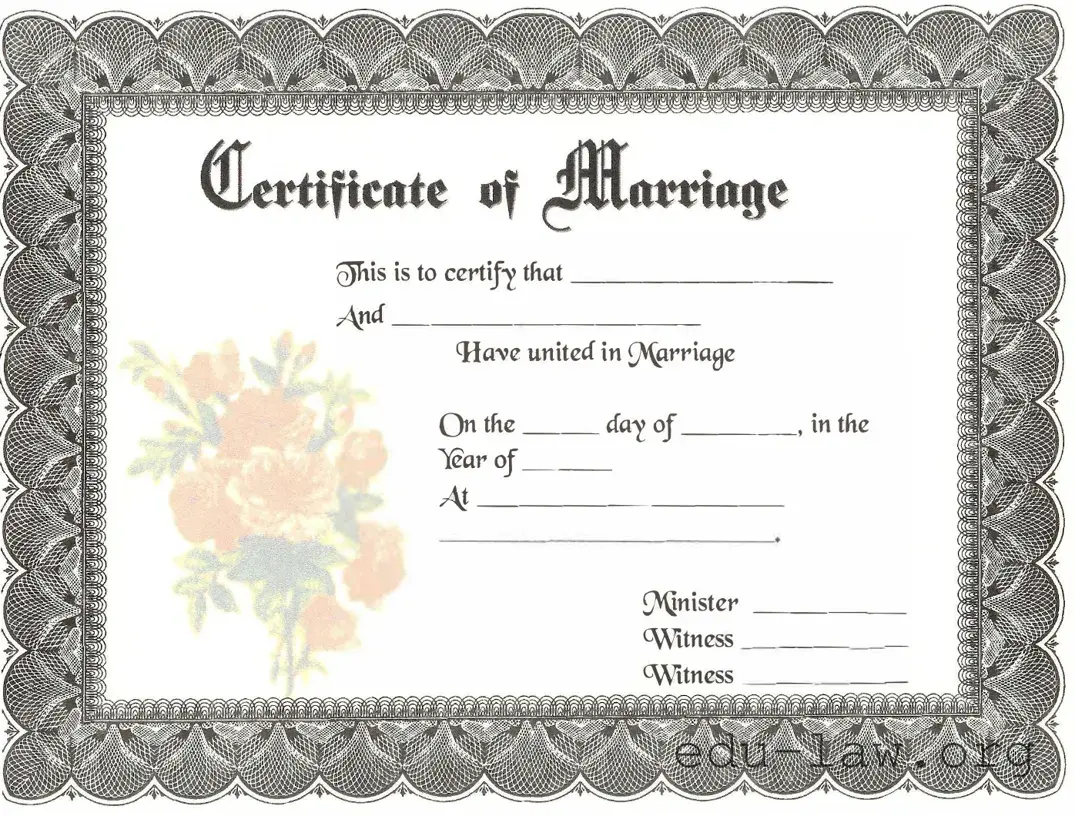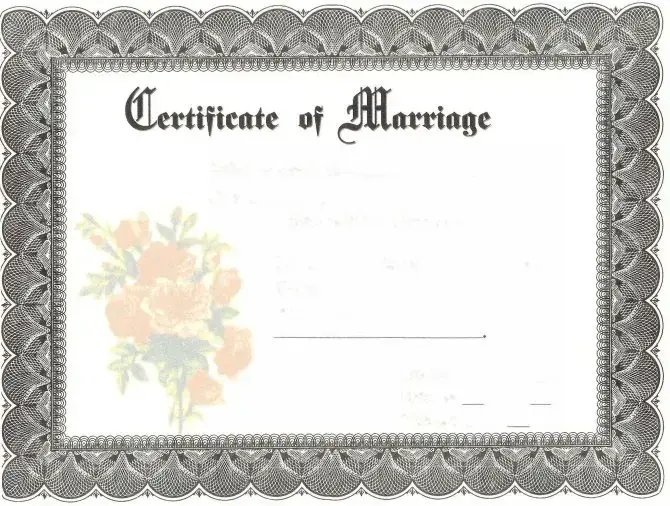What is a marriage certificate?
A marriage certificate is an official document that legally recognizes a marriage. It serves as proof that two individuals have entered into a marital union. This document is often required when changing names, applying for benefits, or proving marital status.
How do I obtain a marriage certificate?
You can obtain a marriage certificate by applying through the vital records office in the state where the marriage took place. You'll typically need to provide information such as the full names of both parties, the date of the marriage, and payment for applicable fees.
What information is included on a marriage certificate?
A marriage certificate generally includes the names of both spouses, the date of the marriage, the location of the marriage, and signatures from officiants and witnesses, if applicable. The document may also include some identifying information such as the birthplaces of each party.
Can I get a copy of my marriage certificate if I lose it?
Yes, if you lose your marriage certificate, you can request a duplicate copy from the office that issued the original. You'll need to provide identifying information and may need to pay a replacement fee.
Is a marriage certificate the same as a marriage license?
No, a marriage license is a document that allows you to get married, while a marriage certificate is issued after the marriage has occurred. You must obtain a marriage license prior to the wedding ceremony; the certificate is the official record of the marriage.
Who can request a copy of a marriage certificate?
Typically, only the individuals named on the certificate, immediate family members, or legal representatives can request a copy. The rules may vary by state, so it’s best to check the specific regulations in the state where the marriage took place.
Do I need a marriage certificate for legal purposes?
A marriage certificate is often necessary for various legal purposes. These may include name changes, benefits applications, insurance claims, and matters involving legal separation or divorce. Having this document can simplify many legal processes.
How long does it take to get a marriage certificate after applying?
The processing time for a marriage certificate can vary depending on the state and the workload of the vital records office. It may take anywhere from a few days to several weeks. For expedited services, inquire about faster processing options and any additional fees involved.
Can a marriage certificate be amended?
Yes, a marriage certificate can be amended if there are errors in the information provided or if there is a change in personal information, such as a name change. You will need to follow the procedures outlined by your state’s vital records office to submit an amendment request.

